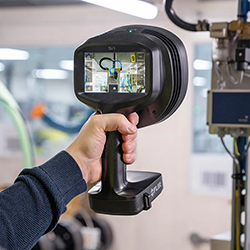HP unveils S$100m campus, home to its first advanced manufacturing centre
Huawei Wireless X Labs Sets up Connected Factory SIG to Explore 5G Applications in Smart Manufacturing
Samsung announces R&D partnership with Clemson, USC to promote advanced manufacturing
Kuka Showcases Robotic Demos at TechCenter Grand Opening
The Next Big Step for AI? Understanding Video
NVBots Sold to Ohio Manufacturer as 3D Printing Interest Grows
Stanley Black & Decker To Open Advanced Manufacturing Center of Excellence in Downtown Hartford
The Industrial IoT Risks You Must Not Ignore in 2018
New design gives 3D printers a 10x speed boost
What We Can Learn From the Second Life of Google Glass
SCADAfence Secures $10 Million in Funding to Protect Smart Manufacturing and Critical Infrastructure Networks from Cyber Attacks
VTT: Five percent of spare parts could currently be stored in digital warehouses.
Emerson sweetens bid for Rockwell Automation to $29 billion
Can US Boost Manufacturing 25% By 2025?
Test Drive Watson IoT in Factory Simulation
Records 781 to 795 of 1210
First | Previous | Next | Last
Featured Product

